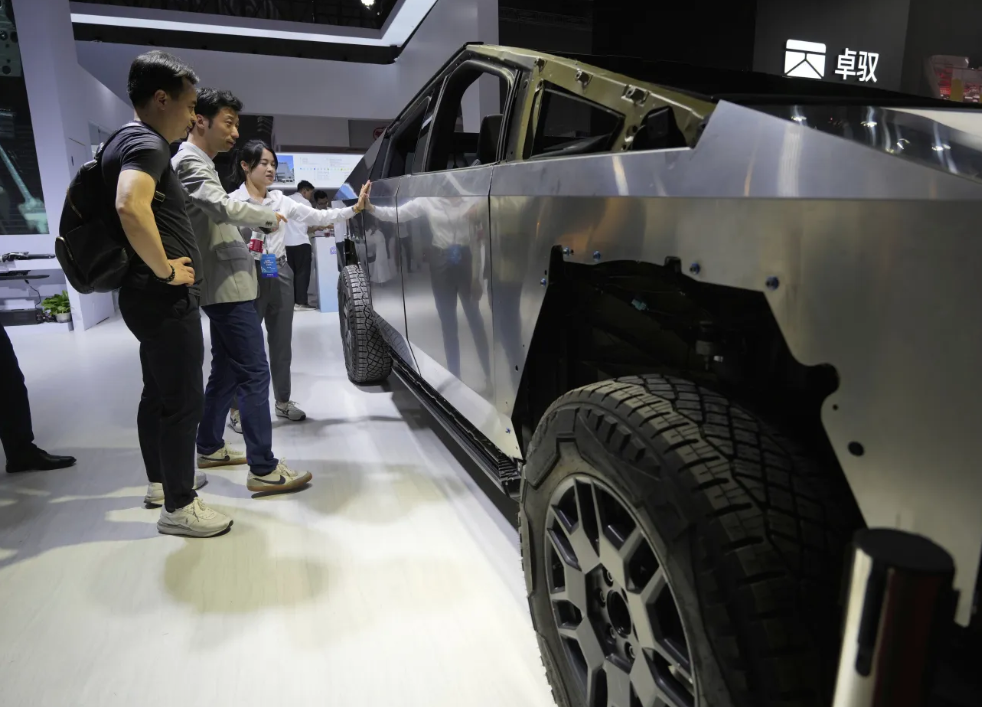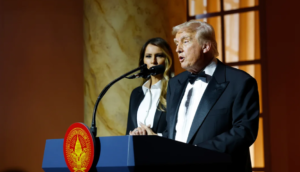At this week’s auto show in Shanghai, booths from major Chinese, German, and Japanese automakers were busy as the industry shifted focus to global markets that aren’t impacted by U.S. tariffs on car and auto parts imports. President Donald Trump’s 25% tariffs on auto imports are prompting companies to reassess their strategies and, in some cases, explore new opportunities.
Ma Lihua, general manager of Soling, a Chinese manufacturer of electronics for auto systems like rearview cameras, explained that when governments are at odds, businesses feel the impact. Soling, based in Shanghai, serves clients like Ford and Toyota and is expanding into Vietnam to support local electric vehicle (EV) maker VinFast, which aims to lead Southeast Asia’s auto market.
Several auto parts suppliers at the Shanghai show have operations in both China and other global markets. One such company, Gestamp, which supplies components like chassis and battery boxes, has faced a slowdown in the U.S. and Europe but is expanding in Asia, Latin America, and Eastern Europe. The tariffs have added uncertainty to an already unstable market, according to Ernesto Barcelo, Gestamp’s chief ESG officer, who noted that supply chains are no longer as predictable as before.
Political stability is a key consideration for investment decisions, according to Wei Jianjun, chairman of Great Wall Motor Co. He said the instability caused by U.S. tariffs makes countries like Hungary more attractive for expansion over the U.S. Great Wall will instead focus on trade between China and Europe, despite high EU tariffs on Chinese-made electric vehicles.
Tianshu Xin, CEO of Leapmotor International, a joint venture between Stellantis and Leapmotor, indicated that the company’s focus is not on the U.S. market right now. He emphasized the importance of monitoring the regulatory environment and understanding local customer preferences, which differ from other markets.
Nissan is planning to introduce 10 new EV models in China by 2027, investing $1.4 billion to expand its presence there. In the U.S., it can increase its production capacity to make up for the reduced imports caused by the tariffs.
While tariffs are presenting challenges, they are also creating new opportunities. “Some doors have been shut, but others have been opened,” said Ma, emphasizing how quickly market conditions can change. Companies are also facing increasing restrictions on national security grounds, particularly in auto electronics.
Wuhan Kotei Informatics, which provides software for autonomous vehicles, has adapted to U.S. sanctions by offering consultancy services, allowing foreign clients to customize their software to local needs. General Manager Ye Xiongfei pointed out that while some restrictions are necessary, too many could harm innovation in the U.S. by limiting access to global supply chains.
Some at the auto show believe Trump may soften his stance on tariffs. Yang Jingdi, assistant to the CEO of LvXiang Automobile Parts Co., which makes auto electronics, noted that while Trump aims to boost the U.S. economy through tariffs, these measures are likely to be temporary. He pointed out that China has a well-established supply chain and that it might be the U.S. that struggles if tariffs persist on both sides.
AOD Technology, a company making domain control units for vehicles, displayed a version of Tesla’s Cybertruck fitted with its components, signaling its ambitions to sell parts to U.S. automakers. Despite the uncertainty surrounding U.S. tariffs, senior sales manager Claire Deng emphasized that AOD is preparing for potential opportunities in the future, even if it takes years to become a supplier to companies like Tesla.
Overall, while uncertainty over tariffs remains, many companies are positioning themselves to adapt to the changing global landscape.














